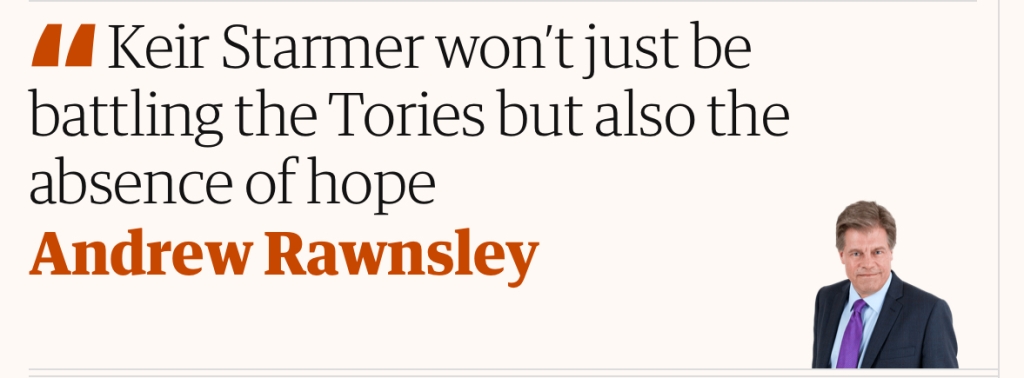The English language is constantly changing. New words and phrases reflect evolving lifestyles and new technology. Back in 2000 no one had heard of the words podcast, vape or selfie – or the phrases post-truth or carbon footprint.

Some changes are more subtle. Take this headline in a column on 7 January 2024 from the Observer’s chief political commentator, Andrew Rawnsley. Until recently the headline would have talked about fighting, not battling, the Tories. But now the verb ‘to fight’ seems in terminal decline, at least outside the literal context of a street brawl. It’s a classic example of a noun becoming a verb.
I confess to feeling irritated by the verbal triumph of battle over fight. Yet I don’t bat an eyelid at hoovering or Googling, or reading that a strike is impacting commuters – and countless other examples of nouns becoming verbs. The difference, I think, is that ‘to battle’ has become almost ubiquitous in place of ‘to fight’. It is a linguistic example of groupthink, which is surprisingly common amongst professional writers and communicators. People who dislike a phrase often find themselves using it once it has grown commonplace.

Here’s another example, from The Times (Robert Lee, 22 December 2023). In the past, reporters would have written that ‘Britain and Brussels agreed to delay’… But for some reason the simple word ‘agree’ was usurped by the phrase ‘signed off’. In time even that was seen as too simple and became ‘signed off on‘. It’s hard to see any reason for this. In the past, sub editors would have ruthlessly cut any superfluous words. No longer. Executing [a plan or strategy] is now executing on. That extra word is completely unnecessary: pure padding.
Continue reading